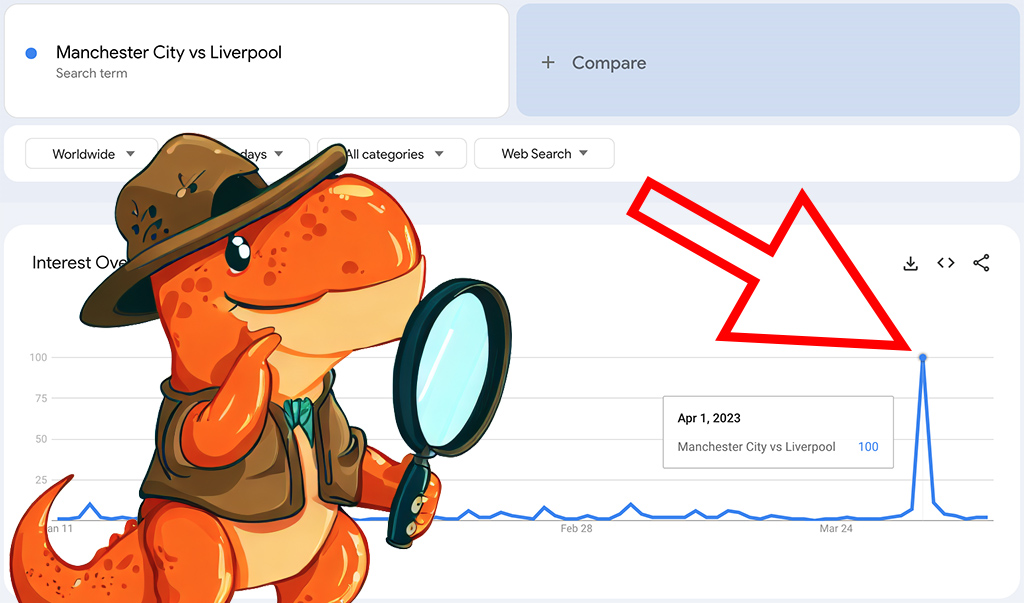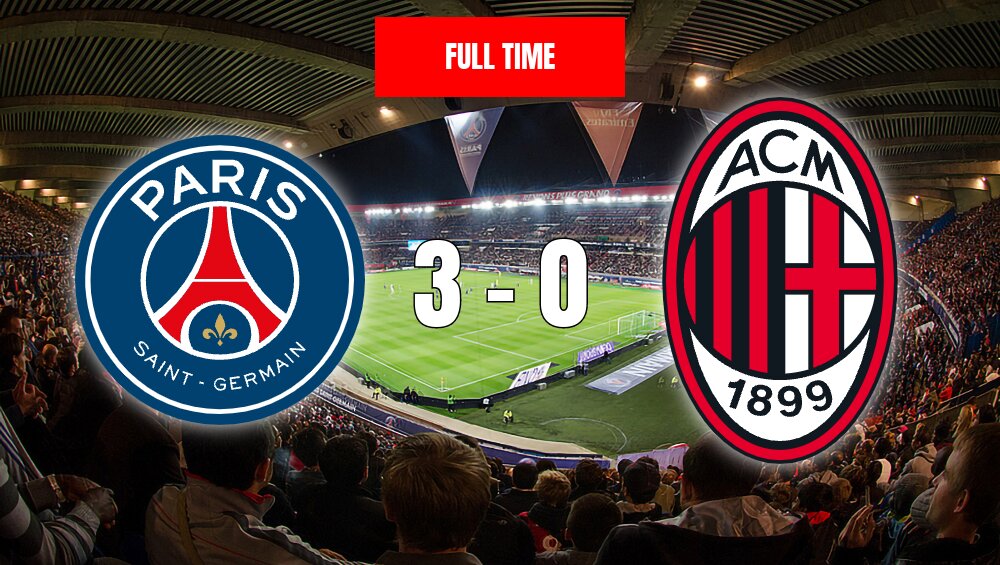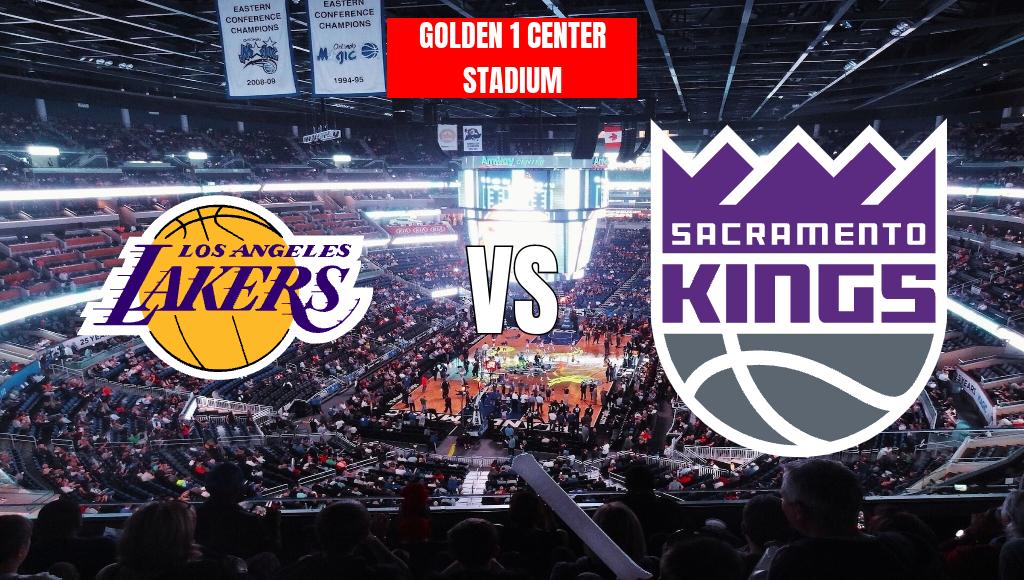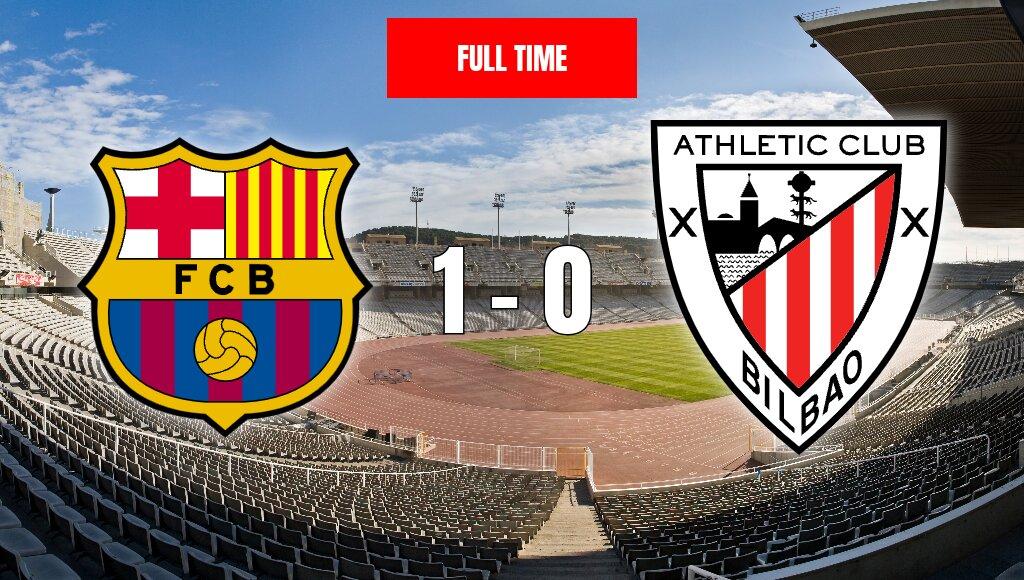Are you struggling to catch sports-related traffic on your website? Maybe it’s not because you don’t know how. Maybe it’s because you don’t know when. In this article, you’ll learn how to time your SEO efforts to catch the 99% of sports traffic and what kind of content you need to have. So, if you want to impress Google and get more traffic, keep reading!
Introducing: “When to rank”
Google’s keyword planner is great and will give you search volumes, but it will not tell you when that search is taking place. Search volumes are not distributed evenly over months or years.
Knowing how to rank is important but for some types of search phrases it’s even more important to know when to rank.
Seasonal SEO
Everybody knows about seasonal SEO. Some search terms, like “halloween costume” or (fingers crossed) “Christmas gift suggestions for my favourite SEO expert” have higher search volumes leading up to Halloween and Christmas.
If you are selling halloween costumes or Christmas gifts there is little benefit of a number one placement in February. You want to grab those juicy first positions in October and December. You want to be at the top when the search volumes peak.
And our good old friend Google Trends will tell us when that is:
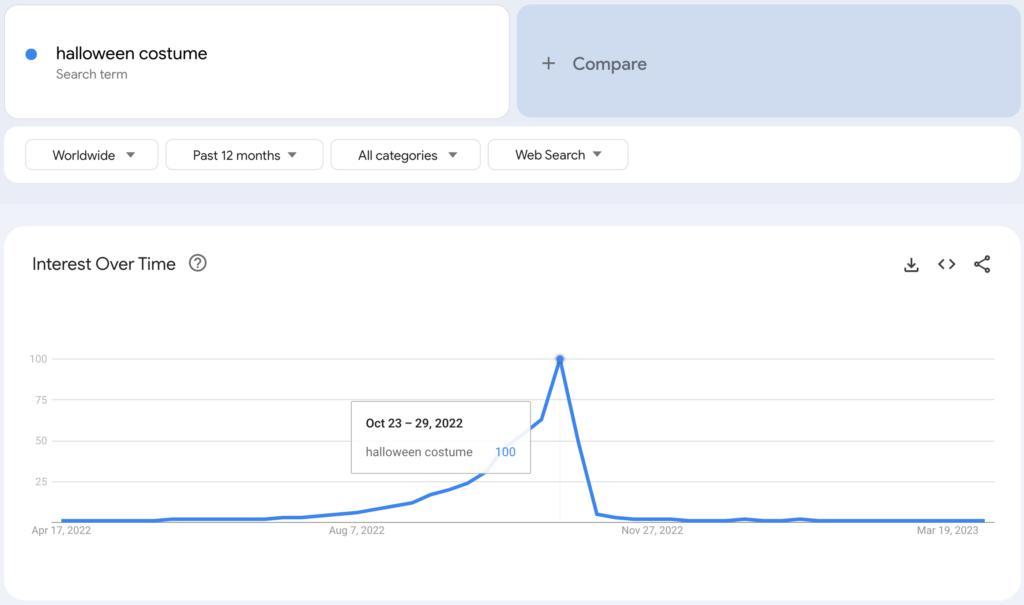
If you are selling spooky clothing it’s good to rank from August, and the sweet spot occurs at the end of October.
Being number one in March will only impress your mom. Nobody else cares.
But did you know there are search terms with even shorter peaks?
How about this one; Manchester City vs Liverpool.
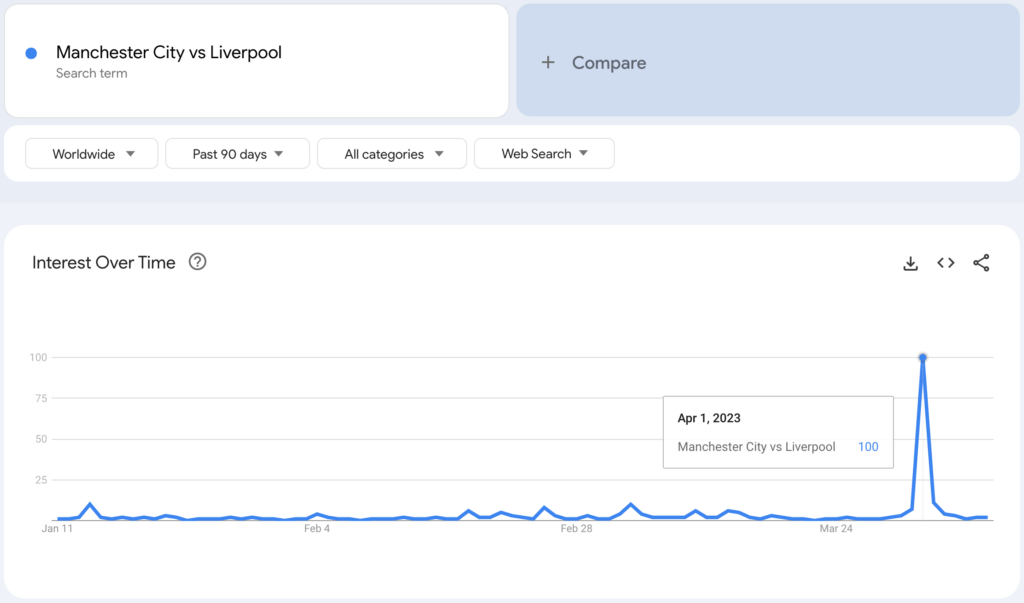
The search volumes are almost non-existent, except for one day. The day of the game.
If you want to get any meaningful traffic on that keyword, you need to rank on that day.
How to Time it perfectly and Rank on Peaks
The first commandment of SEO. “Give Google what it wants and thou shall be rewarded”.
And Google wants to display what their users are looking for (and ads, let’s not forget that Google really loves ads).
Of course, Google knows that users are looking for different things on game days and on those dates Google will promote the content that the users are looking for on that exact date.
Things the users are looking for on the day of the game
- When does the game start?
- Where can I watch the game (which stream/channel/pub?)
- Which players are playing?
- What are the predictions of the game?
- What odds are on the game?
- What is the score?
Spoiler alert! This is the content you will need. Keep on reading for proof.
On the other days of the year, whoever is searching for the teams are not looking for a kickoff time or which pub will show the game. They are looking for historic data, long term statistics and maybe the score of the last game played.
This means that Google will change the search results based on which day it is.
Another way of looking at it is this; Google has one algorithm for the game day and a different algorithm for the other days of the year.
Google has two different algorithms
Let’s start by looking at the algorithm for the “the rest of the year”. This algorithm is used 99% of the time but only for 1% of the traffic.
Case study one: “Manchester City vs Liverpool” on 11th of April 2023. 10 days after the game.
Here are the first two pages of the organic search for the phrase “Manchester City vs Liverpool”. The search was done on the morning of 11th of April 2023. The last time they played was 10 days earlier (the first of April 2023).
This SERP shows the algorithm that is used during the majority of the year.

As you can see, most results are news about the game played 10 days ago. There are also some historical data and some websites that have generated “Head to Head”-statistics from historical data.
This is what it looks like when we look at Google Trends.
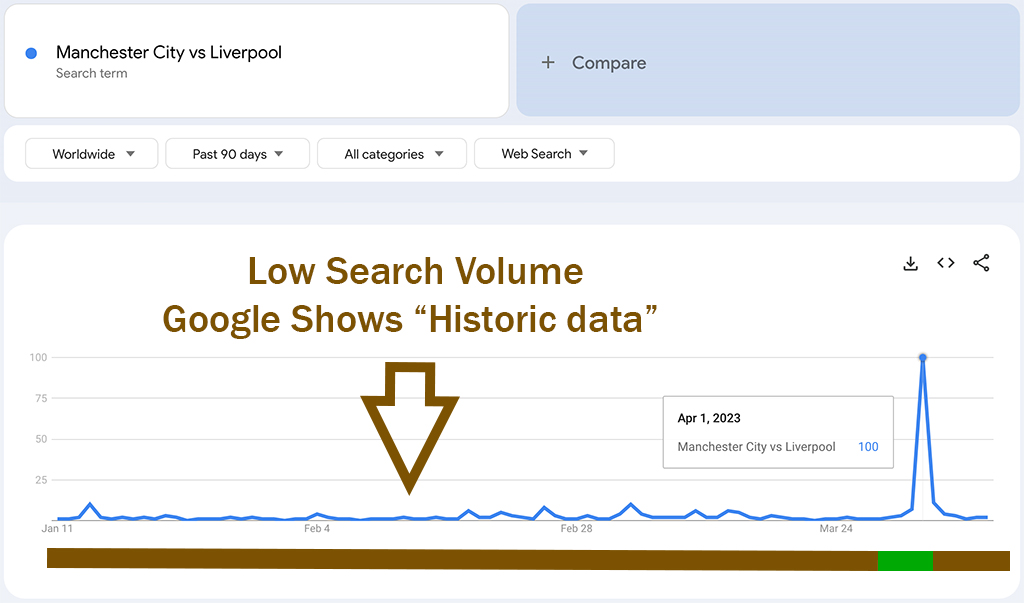
All the high ranking pages in the example above will not get the bulk share of the total traffic. Because when search volumes rise Google switch to a different algorithm and decides to promote other types of content.
Let’s look at a different example to see what kind of content gets the traffic peaks. Let’s look at the winners!
Case study two: “Manchester City vs Bayern Munich” on 11th of April 2023. The day of the game.
Here are the first two pages of the organic search for the phrase “Manchester City vs Bayern Munich”. The search was done on the morning of 11th of April 2023. Later that same day, Manchester City would face off Bayern Munich in the first of two quarter-final games of UEFA Champions League.
In other words, this is what it looks like when Google is using the important algorithm. The game day algorithm. This is the all important 1% of the time and 99% of the traffic. This is the algorithm you need to please to get traffic.

As you can see from this image of the SERP, Google prefers to show articles about the upcoming game with previews, predictions, kick off time and betting odds.
Let’s look at it in Google Trends again.
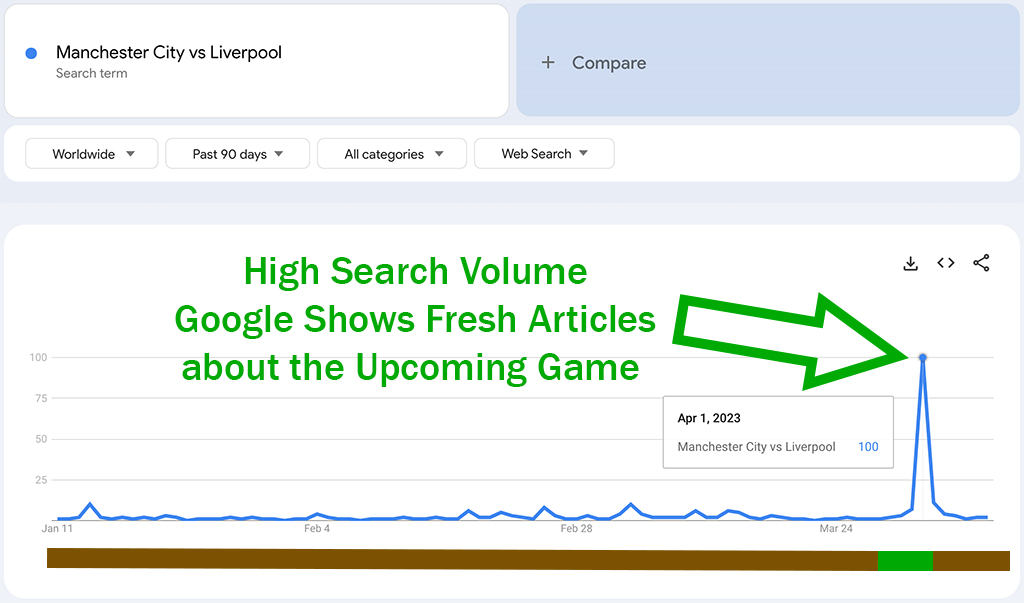
This means that the previous articles that ranked well during the rest of the year, the “historic data” ones, will get only a fraction of the total traffic on that keyword. They simply won’t rank during the peak hours of search. Google knows that one Game Days the users are not looking for that type of information. The users are looking for fresh content about the upcoming game. So Google decides to show promote fresh news. The rankings of “Historic Data” articles are not worth much in terms of actual traffic when compared to the news articles.
This is the proof. To rank on sport related keywords when it’s useful, you need to have specific content; content about the upcoming games.
How to catch the Peak Traffic
To get that juicy traffic from sports related keywords, you need the following:
- Content that is suitable for Game Day Search
- Timing
As you can see from the examples above, when you publish the article matters. Google identifies something as current by looking at the date of publication.
Content that is suitable for Game Day Search
As we mentioned earlier, in order to be to be favoured by Google when the search volumes are high, your content needs to answer the following types of questions:
- When does the game start?
- Where is the game played?
- Where can I watch the game (which stream/channel/pub?)
- Which players are playing?
- What are the predictions of the game?
- What odds are on the game?
- What is the score?
- What else do I need to know in order to impress my friends watching the game?
This means that you need to have the following types of content:
- Game Previews
- Where to Watch
- Game Predictions
- Betting odds
- Live Score
- Player lineup, injuries and suspensions
To create this you need to have an active content plan, a good data source and a great sports editor.
Timing needed to rank on Game Day
The second thing you need is good timing. Of course you can’t post your Amazing Game Preview after the game has been played but posting it too early is also not good. Google likes to show fresh news.
Unfortunately there is no easy answer here. When to post depends on your site. You need to take into consideration how often your site is indexed by Google. You might miss the window of opportunity if the Google Bot doesn’t visit you between publication and the traffic peak.
Posting a news item every day is a good way of getting a visit by the Google Bot more often, making it easier for you to time the peaks.
Using automated publishing will also make it much easier to publish at the right time.
Let’s wrap this up
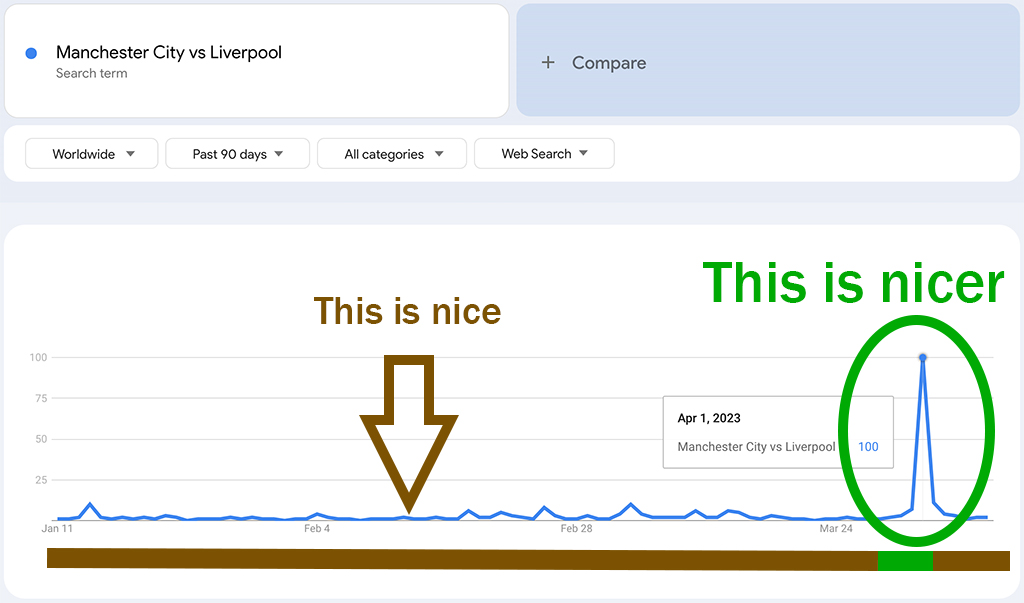
There is an old SEO saying; “When in doubt, ask what Google wants to have.”
And Google wants Game Previews on the game day. So to catch 99% of the traffic, you need to rank with Game Previews. And you need to publish them in a certain window of time before he game.
If it sounds complicated, don’t worry; We would love to help you. We have developed a system in which we can produce high volumes of high quality content; game previews, betting predictions and everything you need to rank on the most important days of the year: Game days.

